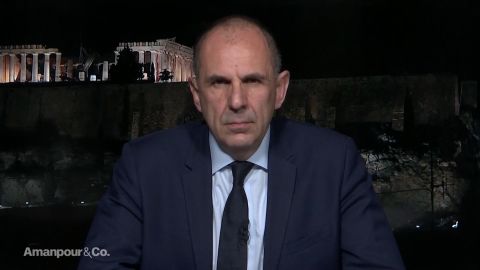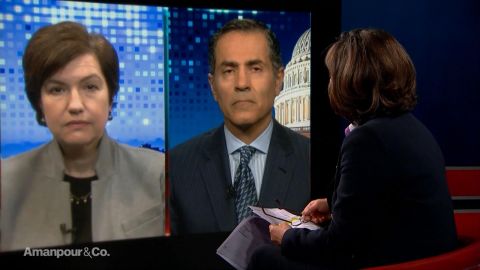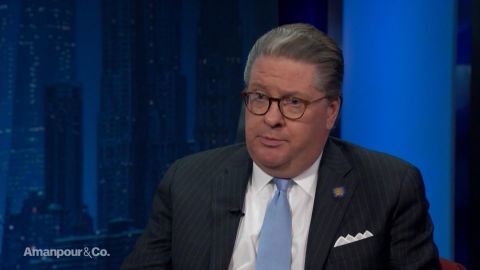Read Transcript EXPAND
SUSAN GLASSER, STAFF WRITER, THE NEW YORKER: You know, one thing that strikes me from the vantage point of American politics right now in the presidential election is that President Trump, in some ways, is both a co-author, at least of this, in the sense that the United States has made it very clear it no longer is interested in playing, to the extent it was, which was minimal to begin with, any kind of a real role in resolving the Syria crisis and, of course, announcing earlier this year that the U.S. would back away from what presence it did have in Syria and handing that over essentially to Erdogan and Turkey, right. So, on the one hand, you have the U.S. stepping out of even the possibility of playing a leadership role. On the other hand, a president who, I would almost guarantee you, will start to talk about this refugee crisis to say, look, that’s why I want to close borders. That’s why I’m in favor of, you know, throwing up walls and not letting this kind of thing happen here in the United States. And again, the Europeans, they seem really at a loss, frankly. I was struck by that, how much there’s not a strategic plan at all to deal with this. But once again, making the same mistakes of a few years ago.
CHRISTIANE AMANPOUR: And, Vali, let’s just quote something that President Erdogan said earlier about this. If European countries want to resolve the issue, they must support Turkey’s efforts for political and humanitarian solutions in Syria. I mean, you know, Erdogan seems to turn the spigot on, turn the spigot off, depending on what he wants to achieve politically, militarily. What did you make of the state minister in Greece basically, you know, saying that this is a huge bit of leverage being used by Erdogan? How is this going to play out?
VALI NASR, JOHNS HOPKINS UNIVERSITY, SCHOOL OF ADVANCED INTERNATIONAL STUDIES: It’s not playing out very well. I think President Erdogan has played a very risky game. First, he tried to get NATO to support Turkey against Russia in Syria, that didn’t go very far. Then he tried to goad Europe into supporting Turkey against Russia and the Europeans balked. Now, he’s trying to essentially blackmail the Europeans and that’s now so transparent that it’s going to damage Turkish European relations in the long run. And he’s not got very far with Putin either. He’s arrived at a cease-fire but Putin has not made any promises that he’s going to give an inch to Erdogan in Idlib. And in a way, Erdogan has now sort of cornered himself, he’s alienated Europe, he’s not able to get the United States into the fighting, he’s not able to get very far from — with Russia. And so, in an act of desperation, he’s putting a lot of pressure on Europe and the European, for the first time, are balking at this and it very well may end up creating a major humanitarian crisis on the border for which Turkey will end up also assuming a good deal of the responsibility.
About This Episode EXPAND
Greek State Minister Giorgos Gerapetritis discusses the role of Greek forces at the border between Syria and Turkey. Vali Nasr and Susan Glasser explain what the world can expect following negotiations between the U.S. and the Taliban. New York state senator Peter Harckham opens up about his battle with addiction and how it influences his work combating the opioid crisis.
LEARN MORE


